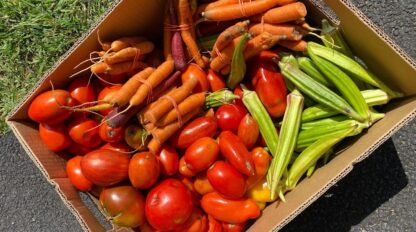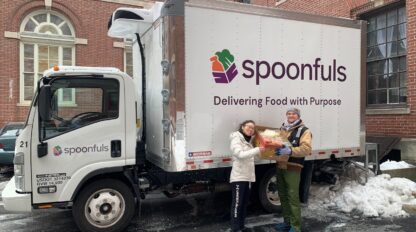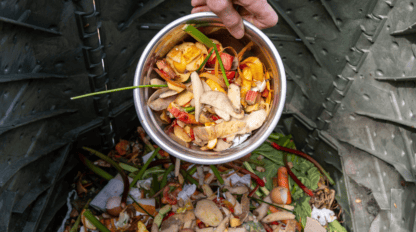The Impact of Food Recovery on the Economy
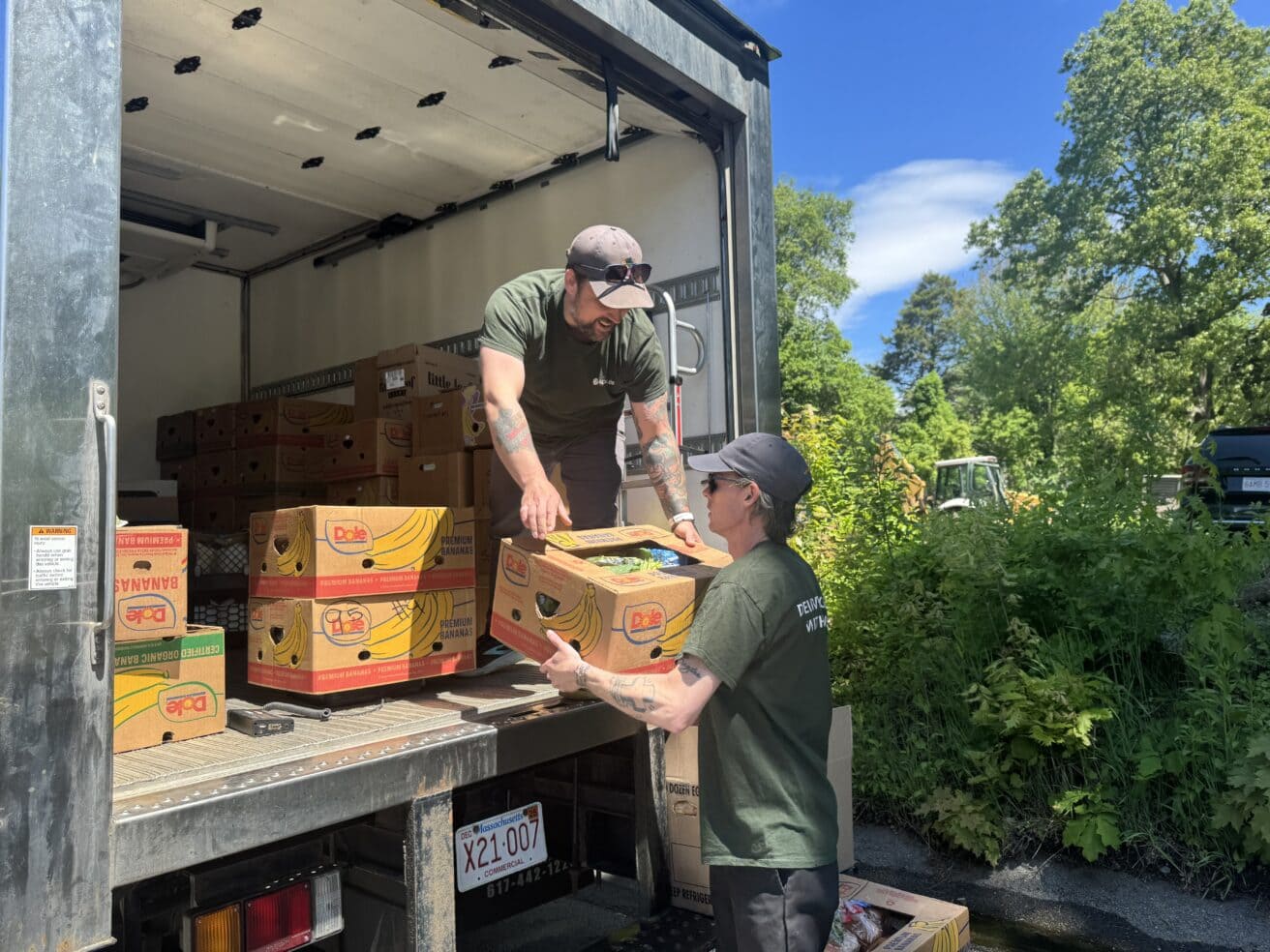
Imagine opening your garbage or compost bin and finding it filled with money. Sound dramatic? It isn’t. That’s because when good food goes to waste, money is wasted, too. Thankfully, there’s a solution: food recovery.
Food recovery, like what we do here at Spoonfuls, offers a practical, cost-effective answer to the problems of wasted food and food insecurity. It also honors the value in food, not just its nutritional value, but its financial value from the many resource investments it takes to get food from farm to fork.
The Value of Wasted (and Recovered) Food
Whether you’re a shopper, a small business owner, or a large-scale distributor, everyone pays a price for wasted food. This infographic from ReFED shows us the dollar value of surplus food across industries:
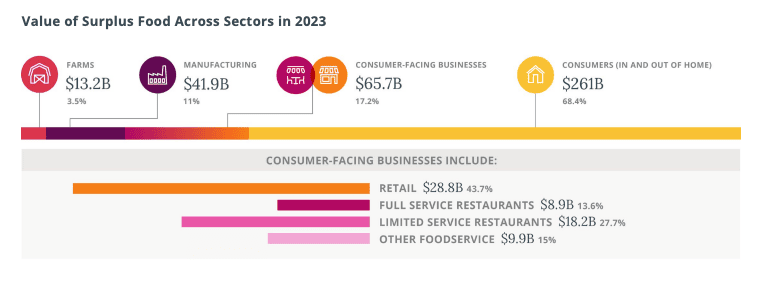
In total, that’s $384 billion worth of surplus food, of which $339 billion goes directly to waste. This represents dollars and time that could be spent otherwise stimulating the economy.
And, because businesses need to cover the cost of food they waste (like paying to compost or otherwise haul away excess), wasted food also drives up food prices across the board. As costs rise, consumers feel the pinch, with low-income consumers feeling the biggest pinch of all.
Plus, the value lost is more than just the monetary value of food. Every food item in your fridge, on grocery store shelves, or served on restaurant plates didn’t land there without effort. Think: farmers’ labor, fuel to transport goods, and electricity to store food safely. When good food doesn’t feed people, all of the valuable resources contributed to that purpose are lost.
More on the Food Recovery Fix
Food recovery is a tool we have to get to food while it’s still good (and safe) to eat and ensure it reaches people. From households to businesses to communities, we all have something to gain when we stop wasting food.
For Food Donors Donating Food
Donating good food to Spoonfuls is good for businesses’ bottom lines. Here’s how:
- Free food pickup: There is no cost to our donor partners for our services.
- Lower waste hauling costs: By ensuring still-edible food is recovered, donors send less to compost and trash – and spend less on those services in turn.
- Tax incentives: Donors can save money by qualifying for the enhanced tax deduction when they donate excess food to 501(c)(3) nonprofits like Spoonfuls.
We’ve heard directly from our food donor partners about the benefits to their bottom lines. Artie Kroese, Director of Operations at Roche Bros., shared with us, “We saved $35,000 [in 2024] in organic waste removal by donating excess food to Spoonfuls. The overall savings continue to grow. It is good for business and good for our community.”
For Organizations Receiving Food
For the 250+ community-based organizations in our network, partnering with Spoonfuls saves them money, too. We deliver food at no cost. This means our partners are able to offer their participants more food – and more fresh food – than they would have been able to provide otherwise. It also means they can allocate more of their often limited program budgets to the various important services they offer.
For Individuals and Households
While the average family of four spends $3,000 a year on food they don’t eat, there are many simple ways to ensure food is consumed while it’s still perfectly good, from reconsidering date labels to food storage hacks. If you’re looking to kickstart your food waste reduction habits at home, check out our Food Waste Challenge.
For the Broader Economy
Beyond the direct financial benefits that food recovery offers businesses and households, there are even more indicators that addressing food waste through food recovery is in the interest of our economy.
According to ReFED, strengthening food recovery efforts as a food waste solution could result in the creation of over 1,000 jobs – like the roles on Team Spoonfuls – and a net financial benefit of over $937 million for the U.S. economy.
The climate emergency also costs the country. And since food recovery has a positive impact on the environment, it supports the slower pace of climate change and may reduce the need to cover climate-related impacts.
All of that money saved by recovering food is capital that can be reinvested into the economy – no more trash bins full of cash.
Become Part of the Solution
Spoonfuls’ food recovery work helps to bolster our local economy by honoring the value of food and related resources. And that food goes on to fulfill a worthy purpose: feeding people while benefiting the planet. It’s a win-win-win.
Want to help ensure good food (and good money) continues to stay out of landfills? You can:
- Donate to help Spoonfuls get even more nourishing food to people across Massachusetts.
- Take our Food Waste Challenge to learn how to reduce food waste at home.
- Sign up for our emails to learn more about food recovery and stay up to date on our latest ways to get involved.
